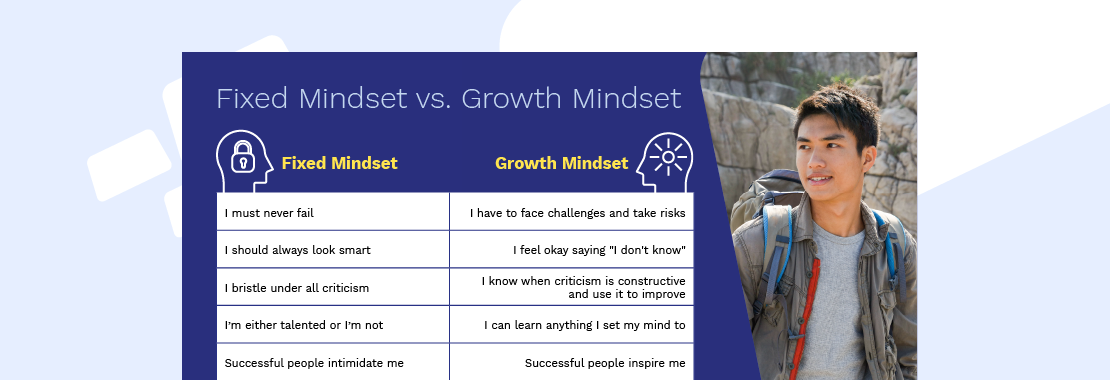Failure is only failure if we refuse to try again. And according to Stanford psychologist Dr. Carol S. Dweck in her book Mindset: The New Psychology of Success, a major contributing factor to performance — in and out of the classroom — is this type of mindset around failure.
In her research, Dweck discovered that people tend to foster a belief about themselves that either hinders or helps performance, stating:
“For twenty years, my research has shown that the view you adopt for yourself profoundly affects the way you lead your life. It can determine whether you become the person you want to be and whether you accomplish the things you value.”
What is a fixed mindset?
Dweck goes on to define the first of two mindsets: the fixed mindset.
“Believing that your qualities are carved in stone — the fixed mindset — creates an urgency to prove yourself over and over. If you have only a certain amount of intelligence, a certain personality, and a certain moral character — well, then you’d better prove that you have a healthy dose of them.…”
What is a growth mindset?
Then, Dweck shares insight on the growth mindset.
“There’s another mindset in which these traits are not simply a hand you’re dealt and have to live with….In this mindset, the hand you’re dealt is just the starting point for development. This growth mindset is based on the belief that your basic qualities are things you can cultivate through your efforts. Although people may differ in every which way—in their initial talents and aptitudes, interests, or temperaments—everyone can change and grow through application and experience.”
This means that encouraging a growth mindset within every learner is vital to achievement.
Learn how to identify students who have a fixed mindset and those who have a growth mindset with our Fixed Mindset vs. Growth Mindset infographic.




